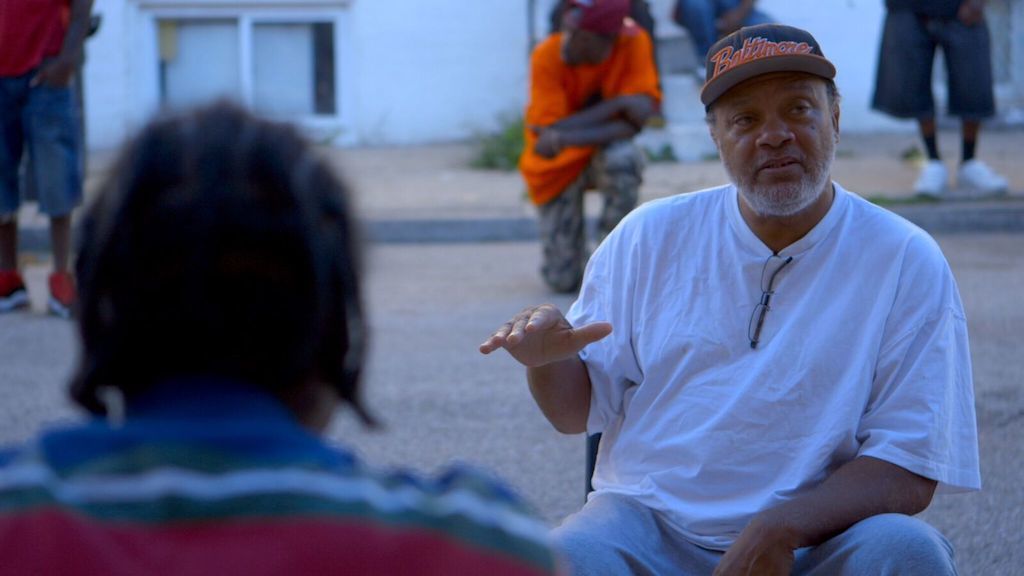
I confess that I had some misgivings before screening Marilyn Ness’s documentary about escalating violence in Baltimore, Charm City. For starters, Ness is not from Baltimore—she’s a native New Yorker—and I wondered how well she could really capture the city, in all its complexities. Secondly, the title of the film is clearly wielded ironically (this is made all the more apparent in the title sequence, as the “C” flashes off and on, revealing the phrase “Harm City”), which seemed a little facile and unfair. (We get to make fun of the phrase Charm City, not outsiders.)
But any doubts I had about the film were quickly dispelled. This is a generous, insightful, and altogether humane look at our wonderful, horrible city, one that doesn’t shy away from its struggles, but manages to leave some room for hope.
The smartest thing Ness does is focus on a small group of Baltimoreans, each representing a different perspective on the city’s woes.
The film’s towering figure is Clayton Guyton, or “Mr. C”—a wise and charismatic neighborhood elder who runs the Rose Street Community Center in East Baltimore. To the young men in the neighborhood, Mr. C acts as a surrogate father (many of their own fathers are dead, deadbeats, or in jail). He dispenses tough-love-style life lessons about respect and professionalism, but mostly what he provides is consistency, a willingness to stick it out with them, a compassionate ear.
His lieutenant, if you will, is Alex Long, a mountain of a young man who was imprisoned as a teenager (possibly unjustly) and now works to deescalate violence and keep other kids out of jail. Eventually, Long will leave the Rose Street Community Center and go work for the city-backed Safe Streets, much to Mr. C’s enormous pride.
The other main characters include Officer Eric Winston, a handsome young cop who really cares about his city, but has already acquired a certain gallows humor necessary to survive the job. As he’s patrolling, he hears shots ring out. “Those weren’t fireworks,” he says ironically, turning on his siren. In one of the film’s sweeter moments, he comes across a community marching band rehearsing in an alley. When they see him roll up, they immediately stop banging their drums. “Keep playing!” he says, getting out of the squad car to enjoy the music.
Then there’s Major Monique Brown, who is raising a teenage son, while watching other people’s teenage sons get gunned down in the streets. Driving to the police station one morning, she looks longingly at Baltimore’s skyline. “We have such a gorgeous city,” she sighs. “I don’t even get to enjoy it.”
And the film could potentially launch a national political career for City Councilman Brandon Scott, shown here to be a dedicated public servant who makes an impassioned argument that all the city’s problems—crime, drugs, clean streets, the lack of safe housing—are interconnected and virtually intractable unless we take a holistic approach to solving them.
The film makes it clear that a lot of people care—cops, politicians, neighbors—and are trying as hard as they can. No one is judged. There’s a sense that we’re all in this together. As Alex Long says at one point, “The streets are going to have to cure the streets.”
To read an interview with Marilyn Ness and Mr. C, click here.
